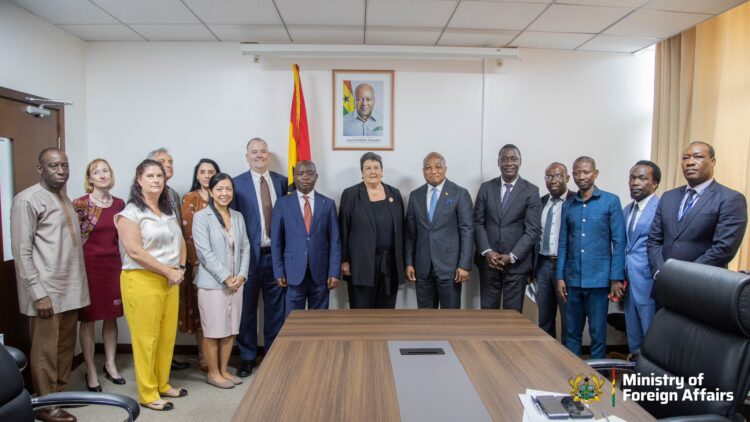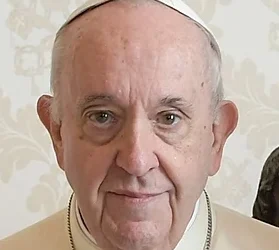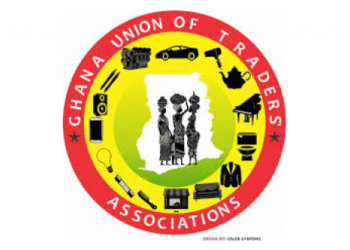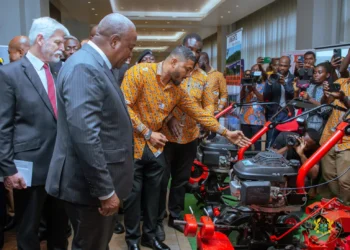Ghana’s Minister for Foreign Affairs, Samuel Okudzeto Ablakwa, on Monday held diplomatic talks with the United States Ambassador to Ghana, Virginia Palmer, following Washington’s imposition of a 10% tariff on Ghanaian exports, which took effect on April 5.
The high-level meeting, held at the Ministry of Foreign Affairs in Accra, was convened to seek clarity on the rationale behind the tariff and to explore measures to minimise its impact on Ghana’s economy. The Deputy Minister for Trade, Agribusiness and Industry, along with other officials, joined the discussions.
Ambassador Palmer explained that the tariff was not intended to target Ghana in a hostile manner but was part of a broader U.S. economic policy aimed at addressing longstanding trade imbalances. She noted that the measure was enacted under the International Emergency Economic Powers Act of 1977 (IEEPA).
According to the Ambassador, some Ghanaian exports particularly critical minerals and energy-related products—have been exempted from the tariff. She also clarified that goods currently traded under the African Growth and Opportunity Act (AGOA) continue to enjoy duty-free access, although further reviews are ongoing.
Discussions at the meeting also focused on the possible exemption of key export sectors such as cocoa and garments, which are significant contributors to Ghana’s employment and foreign exchange earnings. Both parties agreed to work closely to avoid job losses and economic disruptions.
The Ministries of Foreign Affairs and Trade, Agribusiness and Industry pledged to continue engaging U.S. authorities in a bid to mitigate the effects of the tariff and provide support to businesses that may be affected.
The meeting ended with both sides reaffirming the strong bilateral relations between Ghana and the United States and expressing commitment to deepening cooperation despite emerging trade challenges.
















